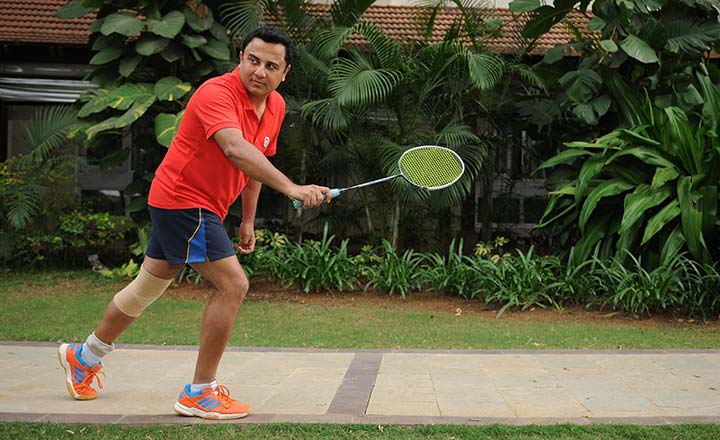45-year-old Navneet Kapoor was not born an MD. In his words, he was “shy and was forced by my mother to go out and play.” Raised on missionary hospital campuses in north India by his doctor parents, he often saw senior doctors play badminton on the courts available to them. That was when his mother convinced the doctors to let Kapoor play along with them for a few games. He says, “I didn’t receive any formal training. It was by playing and watching other people play that I learnt how to play the game the way I do today.”
His time in the US as a student in the 90s made him realise that he did well at all kinds of racquet sports – be it tennis, table tennis or even squash. However, his first love remained badminton. Once he returned to India, he started playing the game more regularly. However, there was a time when Kapoor wasn’t able to play as he does today. He explains, “A slip disc made it difficult for me to play for a while. But, I must admit that playing the sport regularly has been a great contributor to my fitness and general well-being as well. Badminton, as a game, is just as much mental exercise as it is physical.”
Over the last ten years, he has been playing badminton for at least an hour every day at 7 am with his neighbours on the badminton courts in his compound. He has also been playing tournaments between his society and others in the vicinity and even participates in the annual sports tournament that Target conducts. Having won a few tournaments along with his team, he is pretty happy with the game that he plays right now.
He says, “Sport, in general, is a great leveler. I have been lucky to be able to play my best matches with people from all walks of life. I have also had the chance to play with famous actor and dancer, Prabhu Deva and that reminds me that at the end of the day, everyone is equal on the court.” Over the weekends, people from his society play other societies allowing him to play with newer members. He says, “Whoever wins the game has to buy the other team breakfast. I have had too many free breakfasts lately. But, I would like to win and I obviously don’t enjoy losing.”
He also encourages his sons, who represent their school in the game, to play the game. Kapoor’s idea of equality borrowed from the sport, he says, applies to the corporate world as well. He explains, “I have realised, with the game, that everyone is just the same and perfectly human on the inside. They may not be explicitly taught to us, but these are lessons that stay on with you for life.”











